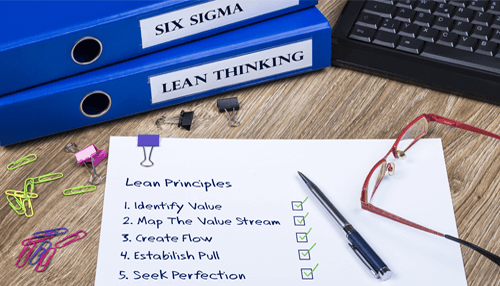Lean thinking is a process by which businesses make decisions in a lean way. The lean decision-making strategy involves several concepts that, when used together, form lean thinking. Lean thinking focuses on the true customer value by eliminating wastage in the process of production.
When appropriately implemented, lean thinking has proven to be successful on different occasions. It’s primarily used in manufacturing to reduce production time and improve quality. There are actually many lean manufacturing case studies that show the different industries that have implemented lean thinking, and it worked.
Why Your Business Should Adopt Lean Thinking
Like several other industries that have adopted lean thinking and benefited from it, your business should also utilize it. This model of production has many benefits, which range from intelligent production to achieving customer satisfaction.
Here are some major reasons why your business should adopt lean thinking:
1. Improved Customer Service
In lean thinking, providing customer value is a major principle. Customers’ demands have to be met when they want it and where they want it. In your business, customers form an integral part of your success; therefore, you should ensure that you meet their demands and provide exactly what they want.
When you adopt lean thinking, your business will provide top-quality goods to customers on time and where the customers need. Such improved services are essential in building a solid relationship between the business and customers. Continuous customer satisfaction will cause your business to thrive.
2. Reduced Waste
In production, waste can be defined as anything that don’t add value to the customer or anything the customer isn’t willing to pay for. Unfortunately, there are wastes in almost every step of production, and these waste time and money, without giving any significant output in the business.
The lean concept of reducing waste aims at eliminating inefficient systems, poor communication methods, and time-wasting habits that get adopted into the business. Lean thinking helps speed up the process, ensuring little time is taken between production and delivery.
3. Improved Quality
Lean thinking focuses on eliminating errors, defects, and wastes in the industry and production. By doing this, the resources are all channeled towards improving the quality of the products. Moreover, the lean concepts advocate for standardizing and automating processes to reduce human error and complacency as much as possible.
When your business focuses on top-quality products, it becomes easier to achieve it. Even in cases wherein there are some defects, they’re identified quickly and dealt with before they pile up and affect the output.
4. Better Decision Making
Lean thinking encourages organizations to decide at the last responsible moment to help reduce waste, such as developing a product that won’t be viable in the market. Lean thinking eliminates this by leaving enough room for the decision-makers to be agile and flexible enough to tweak the production process and make the best decision.
The principle of deferred commitment encourages the business to make decisions depending on the latest developments in the market. It helps the business stay up-to-date with the trends and adjust accordingly, rather than being pegged on a long-term plan that may be unsuccessful.
5. Improved Workflow
Having a streamlined workflow system in your business has several benefits, such as cutting costs and increasing production speed. However, distractions in the organization can work against this as people aren’t focused on a particular goal. As a result, the production process is slower, meaning more resources are wasted.
Lean thinking has a clearly defined and automated workflow. The production time has to be reduced, and every team member’s role is defined. Moreover, every team member has to take more training and learning to improve their output.
6. Improved Employee Morale
The lean model of management favors better communication between team members at every level of management. This way, workers are always encouraged to learn and improve, and they’re always given feedback and rewards after achieving a milestone.
When there’s open communication between the management and the employees, people find better ways to express concerns or discuss problems with the production process. In lean thinking, employees are also involved more in the production. By owning the products they create due to more involvement, their morale will go up.
Conclusion
With the benefits that lean thinking offer to businesses, you should consider adopting it to your organization. It helps create a streamlined production process, reduce wastes, and improve the quality of products. All these lead to satisfied customers, and customer satisfaction is significant in the success of the business.
Adopting a lean concept isn’t complicated and won’t require you to revamp the whole organization. You can utilize it in some departments to see how it goes before going full-mode with it. Businesses are adopting more flexible models, and, so, should you.




